The pandemic has put life sciences center stage, but this practice area “has always been at the forefront of making life better for everyone.”
In 2020, life as we know it was turned upside down. On the front lines, medical practitioners and hospitals battled the pandemic, while behind the scenes the race for reliable tests, ameliorative measures, and, most importantly, a vaccine was on. The focus on life sciences has never been stronger. But what are the roles for lawyers in life sciences – now, and as the industry advances?
"The big thing is not the vaccine, but how we deliver healthcare generally, beyond COVID.” [Emily Witt]
It is not just about COVID-19 and the race for a vaccine. As Whistler’s founder, Sean Burke, notes, “life sciences has always been at the forefront of making life better for everyone; it just has the spotlight now.” On the financial side, “there's an element of private equity funds sitting on a bunch of money thinking, ‘you know what? This is a good time for us to focus on these money-makers that aren't going away.’” Fellow Whistler colleague, Emily Witt who has worked with healthcare clients for years adds, “COVID grabbed everyone’s attention and they're starting to think more about healthcare solutions, in life science, drugs…” In a radically changing world, Burke says, “this is an opportunity.” And, “the big thing,” Witt replies, “is not the vaccine, but how we deliver healthcare generally, beyond COVID.”
“It's an exciting time to play in that space because there is more leeway right now to think about how the business models should look for these companies to convey or provide healthcare that make sense in the current environment.” [Farah Gerdes]
Farah Gerdes, the founder and head of Wilson Sonsini’s technology transactions practice, agrees. “With COVID,” Gerdes says, “a lot of the regulations are loosening here and there, or morphing as we recognize that people aren’t going to the doctor's office.” This raises questions like: “how are they getting their healthcare? How do we think about enabling that through software platforms or other ways of addressing the current need?” The result, Gerdes says, is that “it's an exciting time to play in that space because there is more leeway right now to think about how the business models should look for these companies to convey or provide healthcare that make sense in the current environment.”
The result of a continuing pandemic alongside an area going through its own revolution means that life sciences, like Zoolander’s Hansel, is so hot right now.
A Pandemic Proof Practice
Whether or not you have a related background, Witt says, if you’re “working from home and thinking about your life trajectories and think this might be a good avenue, reach out to people, ask questions.” For Whistler’s Dan Mummery, formerly co-chair of Gibson, Dunn & Crutcher’s strategic sourcing & commercial transactions group and hiring partner for the firm's Palo Alto office, jumping on a chance to move laterally into life sciences is a no-brainer. “It’s a unique opportunity to be interdisciplinary,” he says. For those assessing the risks, there will be two inevitable questions. One, what happens post-Covid? And two, just how science-y do you have to be to get involved?
"It is highly interdisciplinary. So unlike practice areas that are industry agnostic, and have a narrow skillset, life sciences cuts across all sorts of substantive skills.” [Ryan Murr]
Starting with the former, as Gerdes and Witt have noted, the impact of COVID-19 on the industry extends beyond the pandemic itself, to provision and delivery of healthcare services amplified through tech. Gunderson Dettmer partner and co-chair of the firm’s life sciences practice group, Tim Ehrlich, agrees. “You have lots of money” coming into life sciences, he says, “a significant amount of investment – I don't see an end to this anytime at all. It’s a great time to be in biotech.” In fact, Burke sees diving into life sciences as an opportunity to future-proof your career. “You could do major deal work even if you were life sciences focused, but not the other way,” Burke says. “Everyone is looking for an edge. If you’ve got a specialty it adds to your marketability.”
In terms of the second question of just how science-y, if you need to ask, the short answer is there’s still hope. Unlike patent litigation and prosecution practices, which typically requires an advanced technical degree, as an industry sector, life sciences legal work broadly covers everything both contentious and non-contentious. “It is highly interdisciplinary,” confirms Ryan Murr, a partner at Gibson Dunn and co-chair of the firm’s life sciences practice. “So unlike practice areas that are industry agnostic, and have a narrow skillset, life sciences cuts across all sorts of substantive skills.”
Murr says that the work includes “mergers and acquisitions, capital markets, advising companies on corporate governance matters and SEC reporting, but it also cuts across IP, FDA regulatory, and white collar.” From a regulatory perspective, for example, Murr notes that “there's a lot of enforcement activity in the False Claims Act area as it relates to the promotion of pharmaceutical products.” This generates “a huge amount of work in the white-collar space in life sciences, which extends to other areas like antitrust.”
"What level of scientist do you want to be? If you want to roll up your sleeves and get elbows deep, then you’re a patent prosecution attorney. If you’re in the middle, then you’re tech transactions…” [Sean Burke]
You Don’t Have To Be A Brain Surgeon To Do Life Sciences, But...
As for the long answer, Burke sets up a scale starting with a mere love of Scientific American that progresses up to a formal “hard-sciences background.” Different practice areas within the life sciences umbrella line up along the way. “The more you’re still a scientist and love science,” Burke explains, “the more you should stay on the patent side.” However, if “you’re interested in the science, but more interested in helping the business, then you should be aiming for the more corporate side.” The question you need to ask yourself, Burke says, is “what level of scientist do you want to be? If you want to roll up your sleeves and get elbows deep, then you’re a patent prosecution attorney. If you’re in the middle, then you’re tech transactions…” and so on.
“If I get on the phone to talk to the scientist or the CEO, and I can’t talk credibly to them about basic immunology, they’re scratching their head: ‘So why are we hiring these folks?’” [Lou Lieto]
Gerdes concurs, “I think your spectrum is really a nice way to think about it. It depends on how close you want to be to the science.” Gerdes says that “at Wilson almost all of our patent attorneys have advanced science degrees.” However, “if you decided not to immerse yourself in science, but you like to think about what you can do with clients in a business setting, then technology transactions is a nice intersection between the business and the science.”
Lou Lieto, a partner in Wilson’s intellectual property and patent practice, adds, “if you’re an M&A attorney nobody really cares what your undergrad was in,” but if you can “speak at a very technical level, clients like that. I think it actually gives you a little bit of a leg up on your peers.” Lieto notes that “if I get on the phone to talk to the scientist or the CEO, and I can’t talk credibly to them about basic immunology, they’re scratching their head: ‘So why are we hiring these folks?’”
Gerdes jumps in, “yeah, that’s definitely true. I mean they want to know that you speak their language and that's one of the great things about having Lou in this practice: He understands the science at a much deeper level than I do.” Gerdes says that she will “get the first round from a technical person at the company, gather my questions, sit down with Lou or one of his associates, say ‘okay I get this far, help me get the next bit so that I can understand it well enough to describe it in an agreement and then communicate with clients.’”
“When I take on a new client I learn about the technology – I don’t just skim through it. I really try to understand it.” [Tim Ehrlich]
As a result, says Lieto, at Wilson, “the kind of folks we look for are folks that are passionate about science. They typically have advanced degrees – but not always.” The most important thing, Lieto says “is that people are scientifically bright. And that they really like science, but then decided to go to law school for whatever reason.” Over at Gibson Dunn, Murr says the story is much the same: “You don't have to have a technical background, but you definitely can't be afraid of science. You have to be willing to lean into it, and if you have that curiosity and that willingness and interest, then that's absolutely sufficient.” Ehrlich echoes: “You don’t need a science background, I don’t have one. Having one is certainly helpful, but not a prerequisite. One of the best biotech lawyers in the country is Alan Mendelson, and he doesn’t have a technical background.” But, says Ehrlich, “when I take on a new client I learn about the technology – I don’t just skim through it. I really try to understand it.”
What Dose Of Risk Should You Take?
While there are fantastic opportunities in biotech at the moment, there are also significant risks, and where you end up plays a big role in determining those risks. For example, if you’re considering joining a start-up trying to get a product off the ground, it’s a high-stakes endeavor according to Witt and Mummery. As Mummery points out, “if you’re a start-up, you have to get FDA approval. That takes time and it’s expensive.” Mummery goes on to illustrate a common risk: “Initial testing may have looked good, but then it didn’t get FDA approval and it all blows up.” Witt agrees. “You’re putting so many eggs in one basket,” she notes. “If you’re a lawyer in this space and choosing a particular company, there are so many factors beyond your control.” But you can still play a big role advising biotech startups even as outside counsel. Ehrlich says at Gunderson, for some of their clients, “we are business advisors and counselors, so we act as their outside general counsel.” Ehrlich says that for some “associates, mostly mid-level, the client talks to them way more than they talk to the partners.” These associates have effectively “become GCs,” Ehrlich continues, “and it’s like, ‘why would I leave here to go to another firm where I won’t have that GC role?’”
"One thing that differentiates a career in life sciences from other practice areas, is that there’s an opportunity for altruism." [Dan Mummery]
And if it all works out, be prepared for next steps. Lieto warns, “for the majority of our clients in life science, if they succeed, they either go public, and bring a product to market, or they get acquired.” The timeline, he adds, “from start to finish is about ten years – the odds that a company gets acquired within that timeframe – I'm gonna say is 50%, 60%, 70%.” Once a smaller start-up gets bought out by a big company, in-house lawyers could quickly see their role change.
On the other end of that risk spectrum, there’s big pharma: massive, well-established companies, whose chances of ‘blowing up,’ in the negative sense, are very limited. But, says Gerdes, for those lawyers, “there's only so much you can change, right? There's not that much creativity, there are lots of rules around what the company can agree to.” You limit your risk, but, potentially, also your reward. “With the start-ups,” Gerdes continues, “each individual wears lots of hats and you have to come up with a solution to the problems of the day. You have to be a lot more creative.” As with any industry, if you’re looking to be in-house counsel for a life sciences company, then you’ve got to think about what type of person you are. If you thrive in a bit of chaos and enjoy problem-solving, “then a start-up environment is really good for you. If you like structure and you like a clear goal, then maybe a bigger company is better,” Gerdes advises.
And, risk profile and personality aside, there is a sweet spot for when to consider going in-house. “I would actually say it's around the fifth year when you've got about 10,000 hours of experience under your belt,” Murr says, tipping his hat to Malcolm Gladwell’s famous rule. “I distinctly recall it was around the time that I was a fifth-year associate that I felt like I had enough experience and understanding that I was able to stand on my own, really advise clients and add value.”
Pragmatism aside, Mummery notes “one thing that differentiates a career in life sciences from other practice areas, is that there’s an opportunity for altruism. If you’re an M&A lawyer, are you really excited about an insurance deal?” Witt underscores that as a life sciences lawyer, you can “be part of an effort that’s making a difference.” Imagine, all those hours and late nights drafting and negotiating, going towards the greater good.










